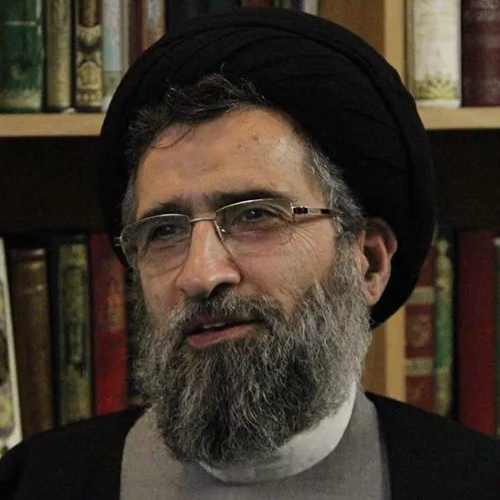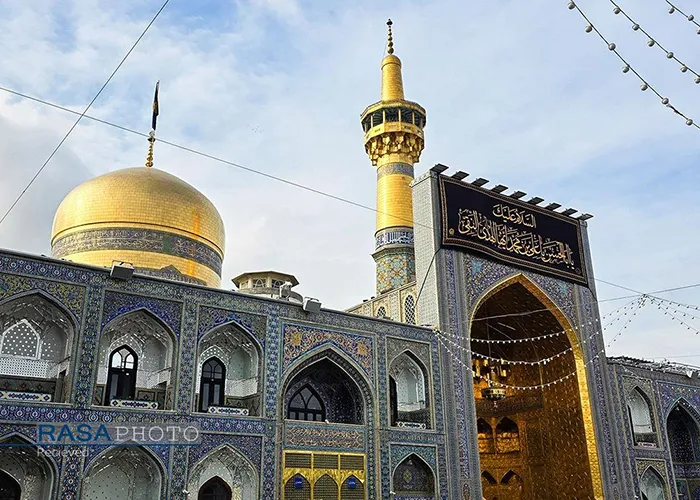Hujjatul Islam Hosseini Qummi
This Friday, which coincided with Arbaeen of Imam Hussain (as), the Islamic Centre of England had the honor of hosting Hujjatul Islam Hosseini Qummi, a renowned scholar and prominent preacher, as the guest speaker. We took this opportunity to invite him to be the guest of this week’s bulletin, allowing the readers of the Friday Bulletin to benefit from the insights and blessings of this distinguished expert in religious studies and media.
Dear Hujjatul Islam Hosseini,
Salaam Alaikum, and thank you for the time you’ve given to this Friday’s bulletin. We have some questions for you, centered around the phrase “I advise you to fear God and to maintain order in your affairs,” which every Friday prayer leader recommends to the believers each week.
Question: What are the dimensions of Taqwa (piety)?
Answer: When we refer to the verses of the Holy Qur’an, we find that the command to practice Taqwa (piety) is mentioned more than thirty times. The phrase “O you who believe, say…” appears repeatedly. Although the word Taqwa itself appears in the Qur’an many more times, the command to practice Taqwa is specifically mentioned over thirty times. I believe that to understand the dimensions of Taqwa, it is sufficient to examine these Qur’anic verses, because every time the command to practice Taqwa is given, a specific dimension of Taqwa is immediately highlighted.
For example, in Surah Al-Ahzab, verse 70, it says, “O you who believe, fear Allah,” which means believers should have Taqwa. What is the manifestation of this Taqwa? It immediately continues, “and speak words of appropriate justice.” This indicates Taqwa in speech, in words. You won’t find any instance where the command to practice Taqwa is given without an emphasis on a specific dimension of Taqwa. This is because the command is not just a general directive; it must have a clear manifestation, and these dimensions are illustrated in the illuminating verses of the Qur’an.
Question: What are the consequences if Taqwa (piety) is recommended but not practiced?
Answer: It’s clear that the Ahlul Bayt (peace be upon them) repeatedly emphasized this issue. In a particular narration, a group of people approached Imam Sadiq (peace be upon him) and requested advice. The Imam (peace be upon him) replied, “Be silent preachers of the people,” meaning, invite people to God through your silence. The people didn’t understand the Imam’s (peace be upon him) meaning and asked for clarification, and the Imam (peace be upon him) explained, “Through your actions.”
Certainly, words without actions not only lack a positive impact but can have a negative effect. People pay more attention to our actions than to our words. I have seen great scholars in the seminary of Qum who themselves said that if our faith was preserved, it was not just because of familiarity with religious teachings, the Qur’anic verses, or the words of the Ahlul Bayt (peace be upon them), but also because of seeing the ethical and religious role models. For instance, some were students of Ayatollah Sheikh Morteza Haeri and would say that their faith was preserved because they had seen this great man. Mere religious teachings were not sufficient for their guidance.
All Prophets (peace be upon him) were like this, the Prophet of God (peace be upon him) was like this, and so were the Imams (peace be upon them). Certainly, if we preach Taqwa but fail to practice what we preach, it will not only lack a positive impact but will also have a negative effect.
Question: Why is Friday prayer a symbol of the integration of religion and politics?
Answer: If we examine our jurisprudential books, for example, those on prayer (كتاب الصلاة), fasting (كتاب الصوم), and purity (كتاب الطهارة), we see that these books deal with individual worship and personal obligations. However, there are also many other books that address social issues, such as those on Zakat, Khums, and various other social matters. This indicates that our religion, while attending to social issues, also pays attention to political matters.
Interestingly, the pinnacle of worship in our religion might be considered I’tikaf (spiritual retreat), where a person spends three days in a mosque dedicated to worship. While fasting on the first and second days of I’tikaf is recommended, fasting on the third day is obligatory. However, it is stipulated that I’tikaf must be performed in a جامع مسجد (congregational mosque), which conveys the message that worship should be at its peak in the presence of the community. It emphasizes being aware of and engaged with the community and people. Even during I’tikaf, if someone in need comes to you or if you need to resolve a problem for a Muslim, you are allowed to leave the mosque, and it is preferred to help resolve the issue.
This shows that the highest levels of religious practice are intertwined with social and political activities. A religion like this cannot have its spirituality completely separated from politics. The same jurisprudential books that discuss prayer, fasting, and purity also cover Jihad and Hajj, which are both significant political and religious events. Of course, this topic has many important arguments and discussions that cannot be fully covered here.
Peace be upon you and God’s mercy and blessings.
editor's pick
news via inbox
Subscribe to the newsletter.




